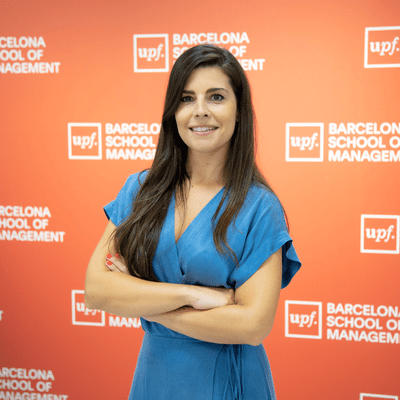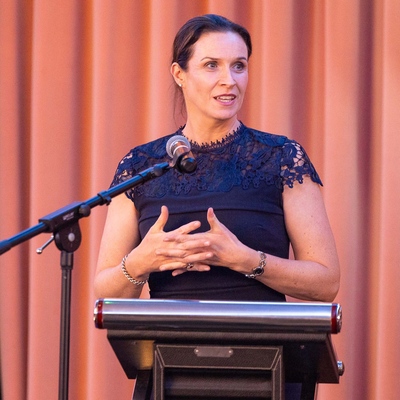Impressing recruiters with an MBA or a master’s degree on your resume is a major reason to study at business school. But, perhaps even more important than gaining the qualification, investing in graduate study will also equip you with a raft of valuable skills that will shape your career for years to come.
According to the Graduate Management Admission Council (GMAC), the top three most important skills that employers value among business school graduates are problem-solving, communication, and strategic thinking.
Any graduate program will have a strong focus on developing these key areas, however the World Economic Forum predicts that 44% of the skills needed for work will change over the next five years. So, what other skills do you need to be successful as a future corporate leader? And what are some of the more unexpected skills you could learn if you enroll in a business master’s or MBA next year?
BusinessBecause asked leading voices from top global business schools to share what they believe to be the must-attain skills in 2025. From entrepreneurial thinking to bubble hopping, here’s what they said.
10 essential business skills for 2025
1. Learning to survive and thrive

The first skill that business school students need to master in 2025 is being able to not just survive, but thrive, in increasingly turbulent, uncertain, novel, and ambiguous times.
Whether geo-political tensions, war, extreme weather events, economic instability or uncertainly around the impacts of AI, the world is currently in a state of volatility not seen for many decades. Students must develop skills and mindsets to identity these disruptive macro trends, understand the opportunities and challenges that they present for nations, organisations and themselves, and draw on the best available evidence to respond.
Dr Laurence Wainwright, director, MSc in Sustainability, Enterprise and the Environment, Smith School of Enterprise & Environment, University of Oxford
2. Harnessing AI for responsible good

Harnessing AI for responsible good is the key skill students need to develop in 2025 and beyond. As artificial intelligence (AI) continues to reshape the business landscape, technical proficiency in emerging technologies is becoming essential for future leaders.
However, true success in harnessing AI and other advancements lies not only in technology knowhow, but in developing the skills of mindful leadership, cross-cultural competence, and a commitment to sustainability.
At Sasin School of Management, we prioritize these skills, ensuring our graduates are tech-savvy, purpose-driven, and prepared to navigate the complexities of a globalised world. While AI can enhance decision-making, it is human judgment and ethical leadership that define its ultimate impact. At Sasin, students cultivate these abilities through mindfulness practices, sustainability-focused coursework, and real-world applications.
Dibyendu Bose, deputy director, strategy, impact & innovation, Sasin School of Management
3. Spirituality behind business awareness

Professionals in the economic sphere must recognize that spirituality and values beyond materialism play a crucial role in shaping business and economic practices. Engaging with people from diverse cultural and spiritual backgrounds is more effective when one understands the spiritual principles influencing their behaviour and morality, offering a competitive edge and fostering stronger relationships.
Spirituality also challenges the conventional focus on profit maximisation, promoting responsibility toward society and the environment within our finite ecosystem. By learning from spiritual traditions and genuine value orientations, economic professionals can adopt holistic thinking, encouraging innovative approaches to value creation and problem-solving.
Dr Dániel Havran, dean of master study programs, Corvinus University of Budapest
4. Critical thinking

In a world inundated with misinformation, one of the most crucial skills for future leaders is critical thinking and analysis (ranked among the top 10 skills for 2025 by the World Economic Forum). I am a great believer that the world needs to have more responsible leaders. A key part of that is leaders who are thoughtful, considered, and who base decisions on data and evidence.
The year 2025 and onwards is going to be dominated by uncertain political and societal movements, allied with increasing technological change. As a business school, we see it as our mission to develop leaders that use data ethically, utilize technology thoughtfully, and above all help shape a world that rewards both intellect and integrity.
Helping students to develop critical thinking and analysis is a focus at UPF Barcelona School of Management, and we do this across our various programs.
Ana Freire, vice dean for social impact & academic innovation, UPF Barcelona School of Management
5. Adaptability

Employers we work with consistently tell us that adaptability is the most important skill they look for in graduates. Most businesses are facing significant transformations—whether that is from environmental pressures, digital developments, or geopolitical issues.
Organizations want people who are flexible and adaptable, who can genuinely think differently and are comfortable with change. Being able to react effectively to unexpected changes in business and the wider environment is a competitive advantage.
It is a cliché that business is changing quickly, but it really is and that’s why adaptability is going to be one of the most sought after skills by employers in 2025.
Christine Sinapi, director of programs, ESSCA School of Management
READ: 10 New Year’s Resolutions For MBA Candidates
©Dilok Klaisataporn/iStock
6. Bubble hopping

In 2025, one of the most valuable skills you can learn at business school is "bubble hopping." For leaders who are driven by values and aim to contribute to a sustainable future, the path forward often involves overcoming resistance. With the easier, "low-hanging fruit" measures already implemented, making a significant impact now requires advocating for actions that may demand sacrifices and face hesitation or opposition.
Bubble hopping is an essential skill in this context. It involves not just imposing norms, which can lead to resistance, but actively listening to various stakeholders and understanding their perspectives. By showing empathy and considering the wishes and motivations of others, leaders can develop measures that are more acceptable. This approach also provides an opportunity to explain the values behind the norms, fostering greater understanding and support.
In essence, bubble hopping equips future leaders with the ability to navigate complex social dynamics, build consensus, and drive meaningful change in a way that is both inclusive and effective.
Berber van Norden, program director of management degree programs, Nyenrode Business University
7. Cross-cultural collaboration

At Trinity Business School, we use an exercise in our cross-cultural management class. On the first day, students are divided into groups, aiming for cultural diversity, and are given a marshmallow challenge. Each group receives 20 sticks of spaghetti, some string, tape, and a marshmallow. The objective is to build the tallest freestanding structure within 20 minutes—a challenging timeframe.
This activity is incredibly effective for breaking down barriers, as students must collaborate toward a shared goal. Often, when they place the marshmallow on top, their structure collapses, creating a moment of collective panic. The challenge reveals different approaches rooted in diverse mindsets and cultural backgrounds, making it an ideal way to introduce the module’s core concepts.
Interestingly, research shows that business students tend to perform poorly in this challenge, as they’re often trained to pursue a single solution. In contrast, kindergarteners tend to excel because they naturally prototype and iterate. This exercise not only breaks the ice but also fosters a strong sense of team spirit.
Dr Eimear Nolan, associate professor in international business and Flexible Executive MBA director, Trinity Business School
8. Responsible management

For over a decade now, we have included the “Principles for Responsible Management Education” (PRME) into our curriculum, they are part of our course learning outcomes and built into our assessment packages.
We want students to be aware of the global environment they will be working in, make ethical business decisions, demonstrate inclusive leadership practice, and develop sustainable solutions. This means we work in collaboration with industry to set real-world assessment briefs and students are asked to respond to an issue that requires complex decisions to be made to demonstrate inclusive practice.
Dr Daryl May, division head, sustainable futures and supply chain, Sheffield Business School
9. Resilience

Among the myriad skills required, resilience stands out as one of the most essential. Resilience is not merely about recovering from setbacks but about thriving in adversity, adapting to challenges, and embracing innovation amidst uncertainty.
IIM Indore is leading this educational shift by embedding resilience into its curriculum through immersive programmes and a holistic learning approach. With a focus on experiential learning, mindfulness, and social impact, IIM Indore ensures its students are not only ready for their careers but also prepared for the future.
One such program at IIM Indore is the Himalayan Outbound Programme (HOP), which was launched in 2010. Initially introduced as a pilot project with just 30 students trekking in Nainital, a scenic hill station in northern India, HOP has since evolved into a 4-credit course for our two-year MBA. It is designed to build resilience, leadership, and self-awareness through immersive experiences in the majestic Himalayan mountains.
Professor Himanshu Rai, director, Indian Institute of Management Indore
10. Entrepreneurial thinking

The entrepreneurial mindset is critical for corporates to survive in a dynamic environment. Adaptability and resilience are essential, no matter how big the organisation is.
Business leaders need to create an environment for others to be innovative. When creative employees are allowed the freedom to experiment, they develop unique solutions. We develop this during group work on assignments, cases and our business simulation. Asking participants to reflect on the space they created for others and their openness to ideas outside their frame of reference, develops an entirely new skill.
Entrepreneurial thinkers often inspire and lead teams effectively. Where better to practice your entrepreneurial skills than within a group of highly driven, equally aspirational business leaders sharing your learning journey?
Martin Butler, professor of management practice in digital transformation, Vlerick Business School



